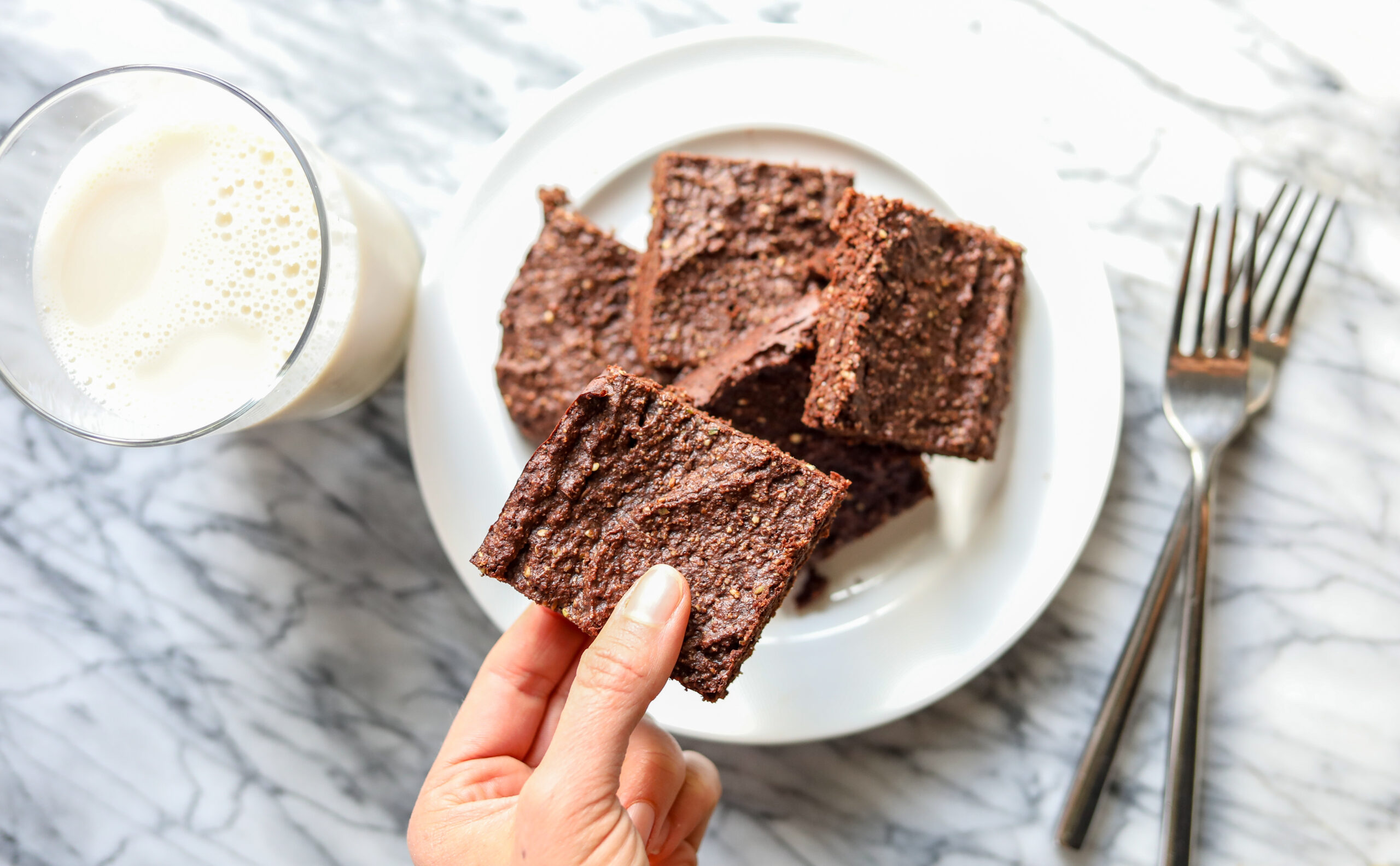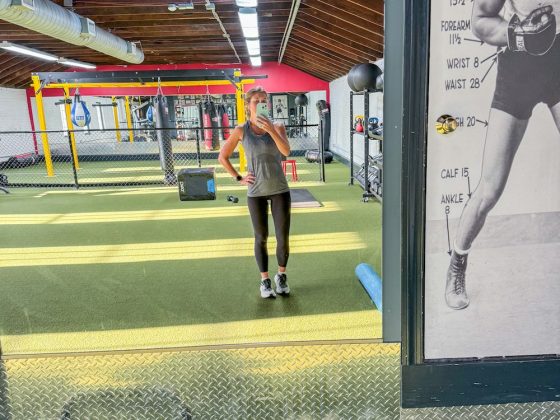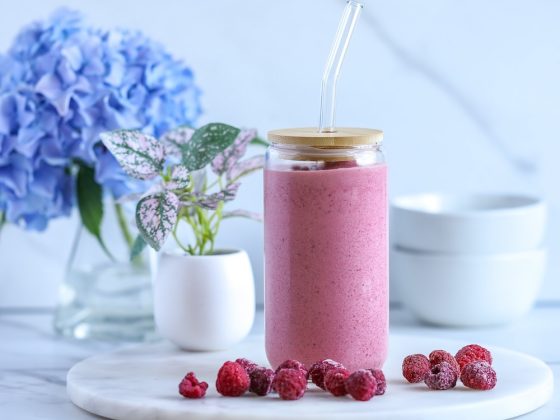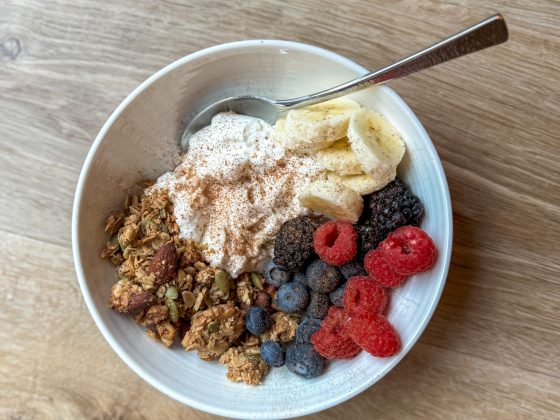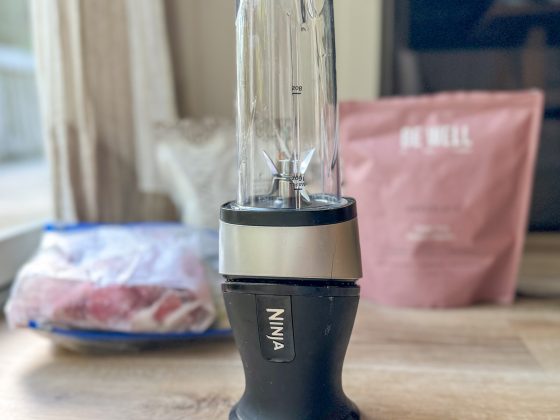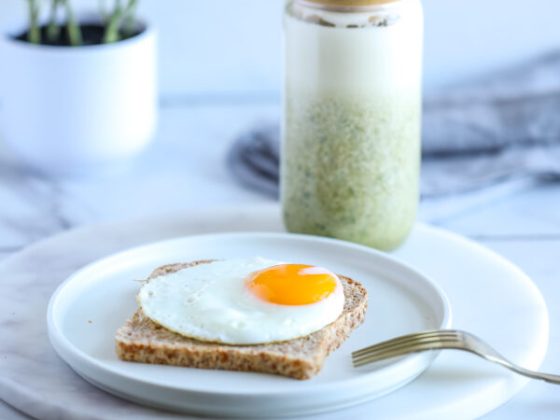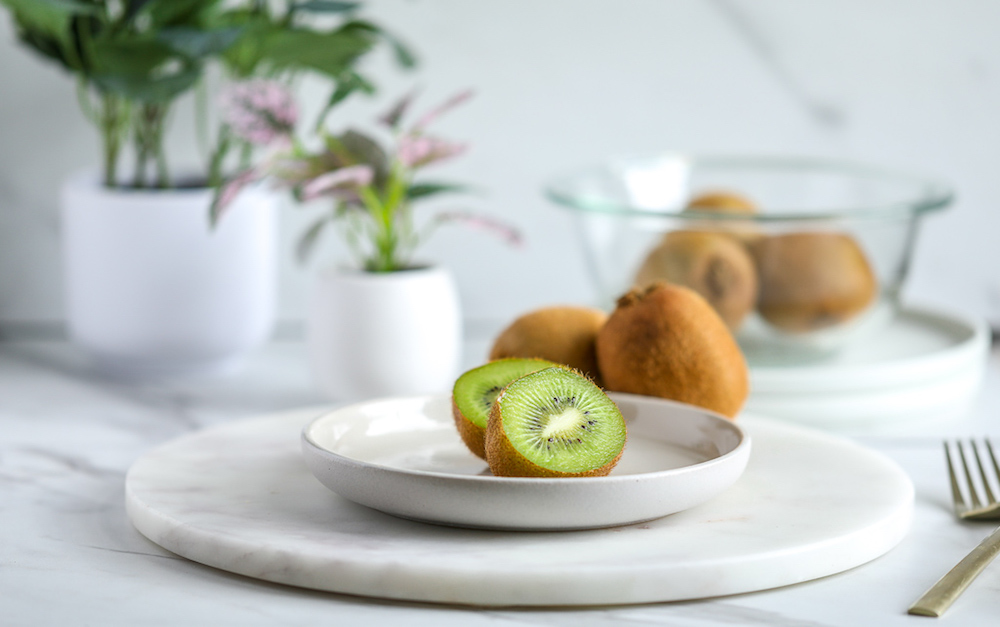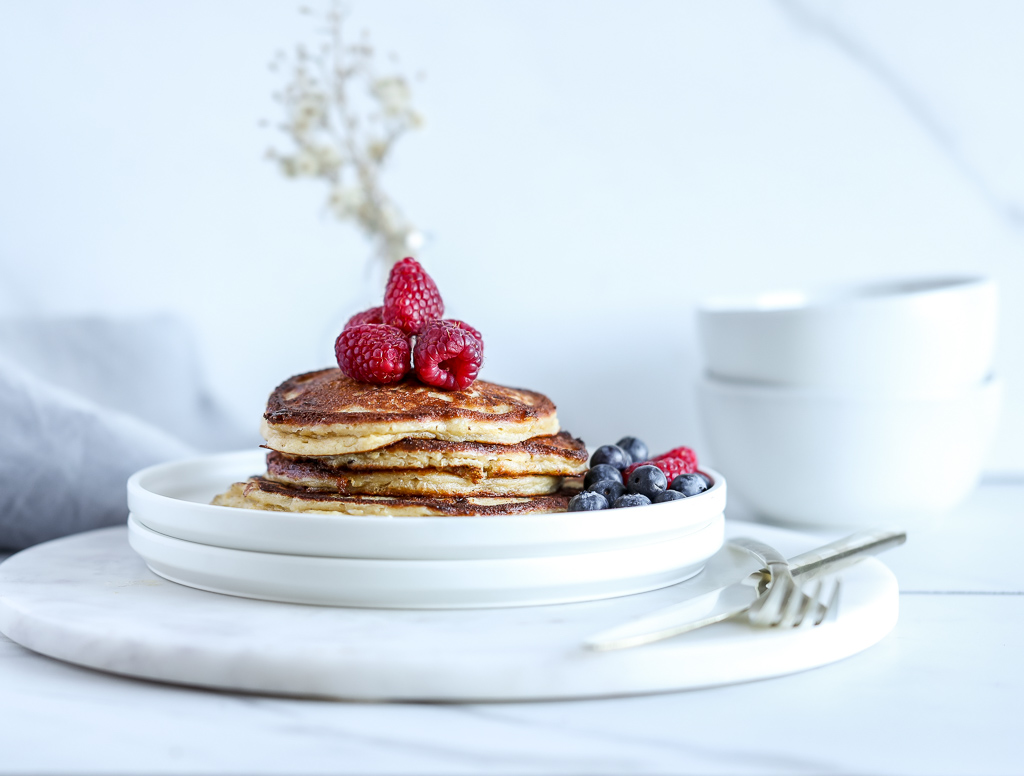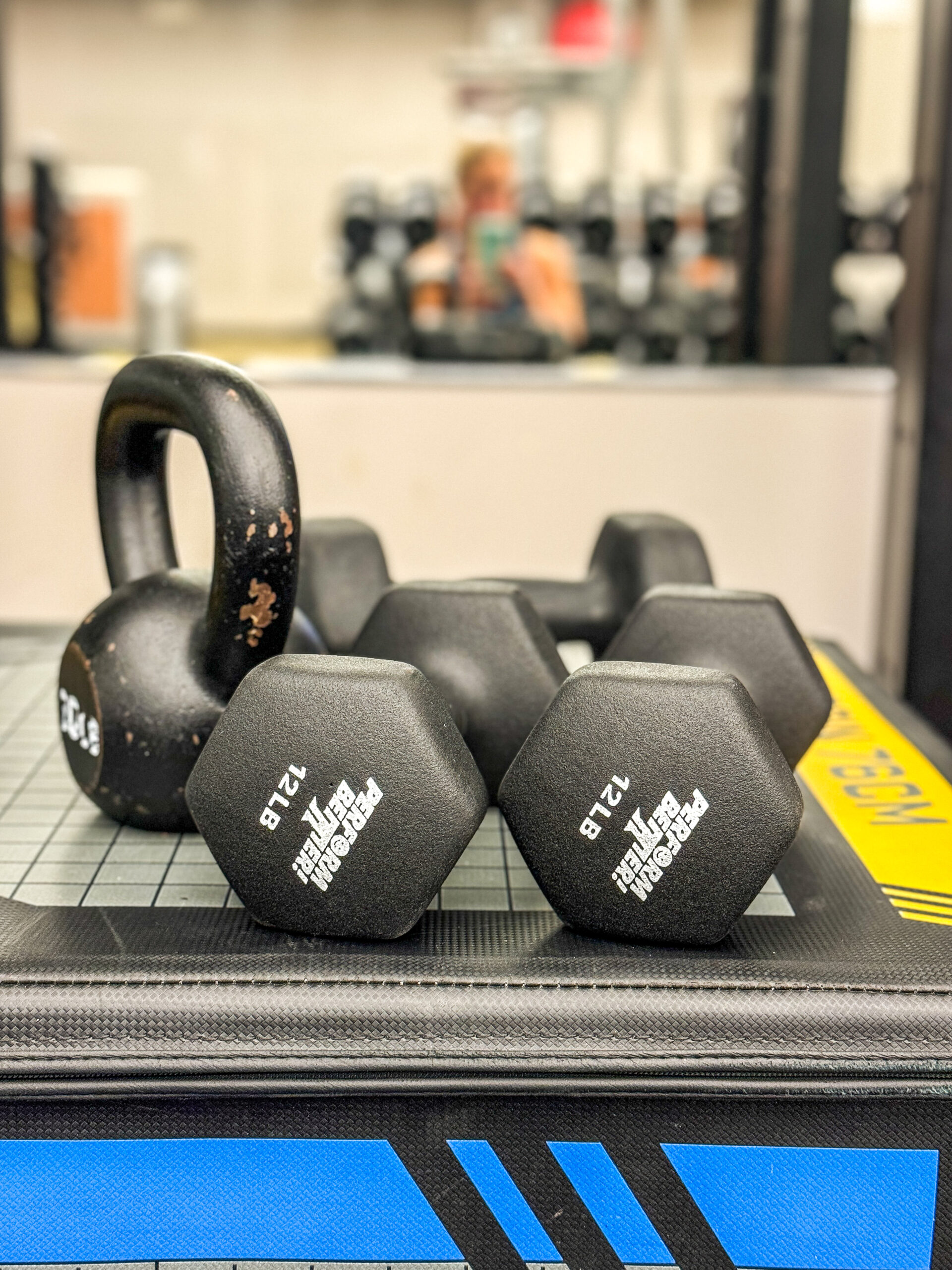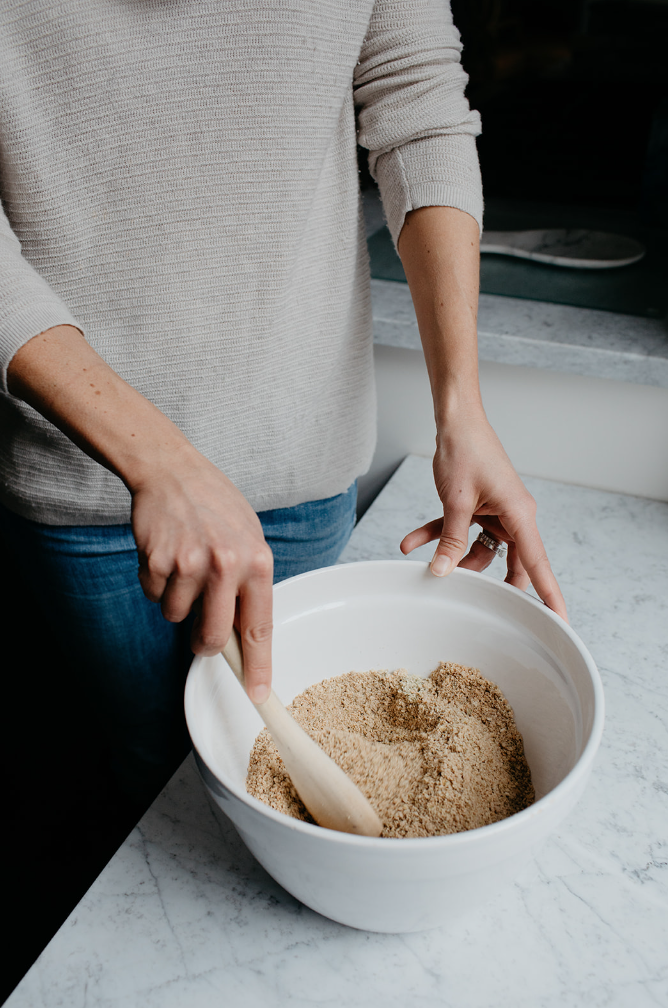We are increasingly making the connection between food and mood. In fact, “Food and Mood” was the title of my very first presentation I gave as a holistic health coach. When I started to dive deeper into nutrition in my mid-twenties, I finally started to link how I ate to how I felt, both physically and mentally. It became less about how I looked, the number on the scale, or fitting into a pair of old jeans (even though I still firmly believe health is also about feeling good and vibrant in your body!), and more about my emotional well-being. Eating in line with the principles of blood sugar balance was the first step I took to end “hanger” once and for all, immediately improving my mood. Since then, I have learned ways to optimize nutrition to support brain health. My Healthified Podcast episode with Dr. Uma Naidoo provides a good picture of what some of those things are. Her book This is Your Brain on Food is also an amazing resource. Here is an example day of eating for brain health.
Breakfast: Homemade Gratisfied Cacao Empower Bar
Yes, you can eat chocolate for breakfast, and I even highly encourage it! I’m not talking a Hershey’s bar, but rather real, organic cacao in its most natural form. According to Dr. Naidoo, “Dark chocolate is a great source of antioxidants, as long as you stick to the dark stuff and make sure it doesn’t include too much sugar.” My Gratisfied Empower Bar Cacao baking mix is made with pure organic cacao powder, so treating yourself to a bar in the morning will start your day in a brain-supportive way. I have written all about the benefits of cacao, and it is one of the best good mood foods. Whether you make your homemade Empower Bars with egg or ground flaxseed you can’t go wrong. Each bring brain-boosting nutrition to the table. Eggs contain important compounds such as choline, lutein, and tryptophan that work to enhance cognition; flaxseeds are a great source of omega-3 fatty acids, ALA, and lignans, which are not only anti-inflammatory, but also support brain development and function.
Lunch: Arugula Salmon Salad
Colorful vegetables, dark leafy greens, and lean proteins are all categories to include in your daily diet, but especially if you are eating to benefit your brain. You have likely heard the term “eat the rainbow,” or what I like to say: count colors, not calories. Putting as much color as you can on your plate will ensure you are getting sufficient vitamins and minerals, as well as those beneficial, disease-fighting compounds found in plants. For examples, studies show polyphenols found in colorful vegetables have neuroprotective properties as we age. Making a big salad for lunch is a way to include as much color as you can. There is not a recipe per se, simply an opportunity to add in your preferred plant-based ingredients. Certain foods (i.e. colors) are more known for their ability to boost brain health.The purple hue found in cabbage, blueberries, red onion, and grapes (to name a few) is attributed to anthocyanins, a class of flavonoids very beneficial to human health. That being said, if I was to make a brain-boosting salad, here is how I would build it:
- Arugula and kale mix
- Shredded purple cabbage
- Blueberries (I love fruit in my salads!)
- Red onion
- Goat cheese
- Salmon
- Walnuts
- Dressing: a tablespoon of olive oil and balsamic vinegar, plus a teaspoon each mustard and honey)
Additionally, don’t forget about fermented foods. On our podcast episode, Dr. Naidoo talked about the importance of adding them in to support your mental and physical health. Some examples are sauerkraut, kimchi, kefir, and kombucha. This is where I get a little particular – I actually don’t love sauerkraut when mixed with other foods (like in a salad or on a sandwich), but do prefer to eat a forkful or two right before I eat lunch. If you don’t care either way, including sauerkraut or kimchi to your mid-day meal would be a good option as well. Dr. Naidoo talks all about the gut-brain connection in her book, but know that to support gut health is to support brain health. The Vagus nerve runs from your brain to your gut, and is the highway of communication between these two systems, so you simply can’t separate them. Furthermore, ninety percent of serotonin (the “feel good” neurotransmitter) is manufactured in the gut. Having healthy digestion will literally make you happier.
Snack: Choose your own adventure!
If you are someone (like me) who typically has a snack sometime throughout the day, there are many options to choose from. Greek yogurt with berries and pumpkin seeds is a good choice – this snack contains protein, healthy fat, and fiber for blood sugar balance, and yogurt is a fermented food (choose high quality coconut yogurt if you need dairy-free). You get color with the berries as well. In her book, Dr. Naidoo has a chocolate protein smoothie for better focus, which sounds like it would help prevent any afternoon slump and make for a perfect bridge to dinner. Plus who needs an excuse to eat more chocolate?? Ingredients include many brain-boosting ingredients: ground flaxseeds, cocoa powder, coconut flakes, and avocado. Sometimes in the afternoon, all I need is a small handful of nuts and dark chocolate chips. I love the taste of 100% cacao, and these Pashca chocolate chips are the real deal.
Dinner: Chimichurri Steak with Miso Butternut Mash and Roasted Asparagus
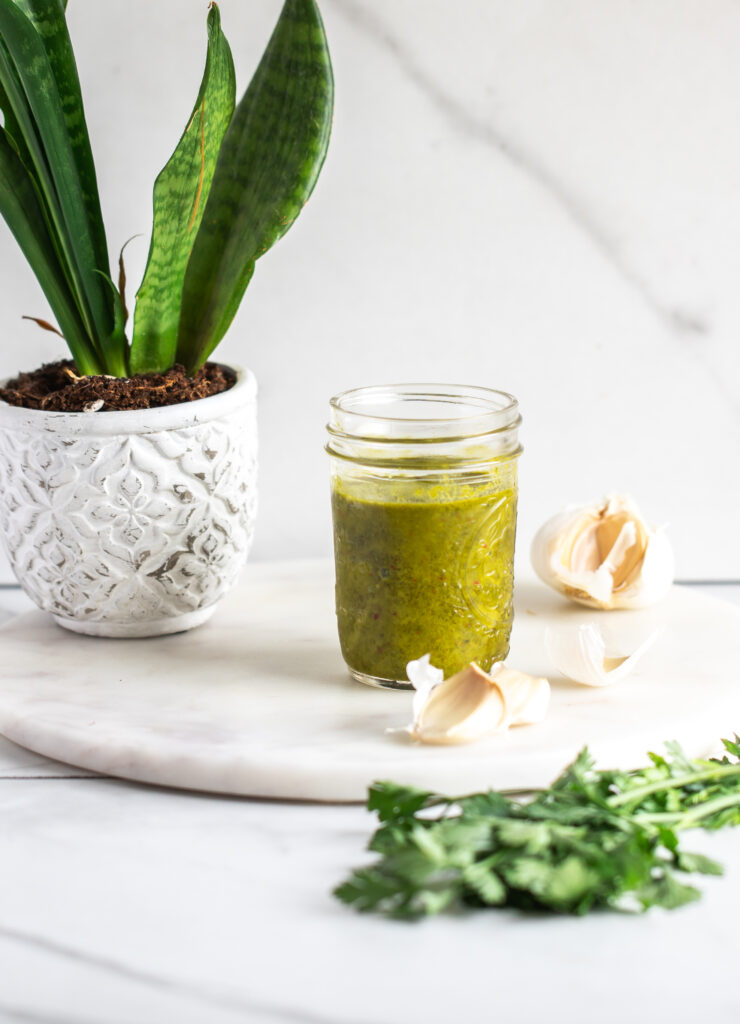
There are so many ingredients in this dish with brain-boosting benefits. And the secret is in the sauce! Chimichurri – one of my favorite condiments – contains parsley and cilantro. These two herbs not only add flavor, but contain flavonoids, which studies show have neuroprotective properties. You can find my go-to recipe below!
While red meat may be controversial in the nutrition world, it is a good source of iron, and I like to incorporate it into my meals at least once or twice a month. Iron deficiency has been linked to a decrease in cognitive functions, so it is an important mineral to include in your diet. The side of miso butternut mash is a more colorful spin on traditional mashed potatoes. Miso is also a flavorful fermented food, and is made from different sources such as soybeans, brown rice, and chickpea (the latter is the one I turn to the most). This butternut mash is one of my favorite side dishes, and you can find the full recipe here.
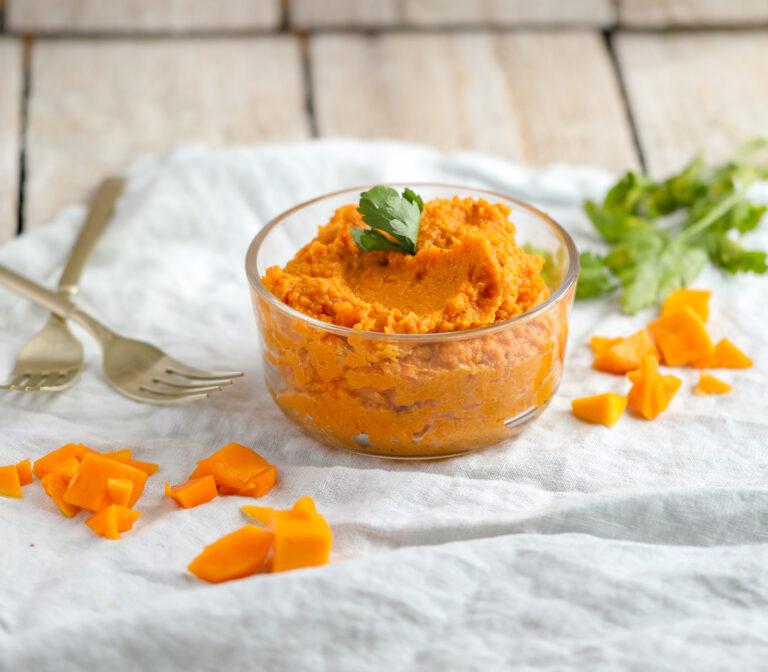
Lastly, because it is always a good idea to include a green vegetable with your meal, I suggest also serving a side of roasted asparagus (broccoli or Brussels sprouts work too!). Take the brain-boosting nutrition up a notch by seasoning with garlic, turmeric, and black pepper. Turmeric contains curcumin, a polyphenolic compound known for its ability to protect brain health and fight against neurodegeneration.
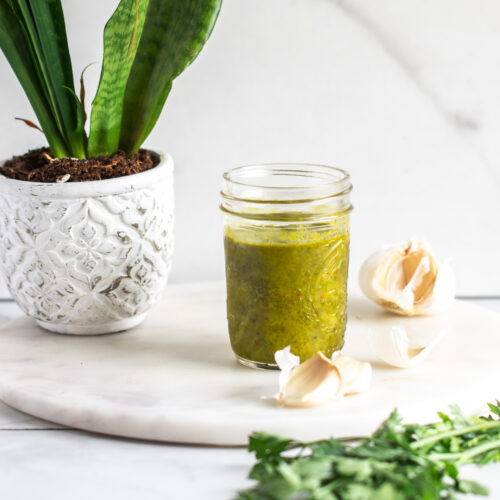
Chimichurri Sauce
Equipment
- Blender or food processor
Ingredients
- ½ cup olive oil
- ⅓ cup red wine vinegar
- 1 cup fresh Italian parsley, finely chopped
- ¼ cup fresh cilantro, finely chopped
- 2 garlic cloves, minced
- ¾ – 1 teaspoon crushed red pepper flakes
- ½ teaspoon ground cumin
- ½ teaspoon sea salt
Instructions
- Place everything in a food processor or high-speed blender. Blend until smooth.
- Transfer the sauce to a small bowl and allow to sit for 30 minutes before serving if able. It is even better the next day!
Notes
If nutrition is something you value, add brain health to one of your motivating factors. In my teens and twenties, eating healthy was more about my physical appearance. I would be lying if I said that wasn’t still one of my “whys,” but as I near 40, staying clear, energized, and agile mentally is just as important to me. Dr. Naidoo is an amazing resource on the subject. Listen to our podcast conversation or read her book for a foundational understanding of the connection between all things food and mood.

